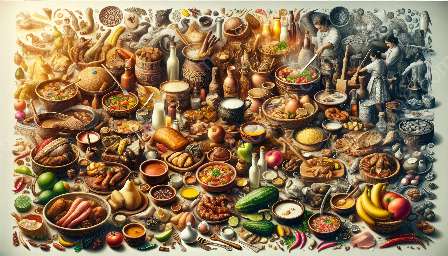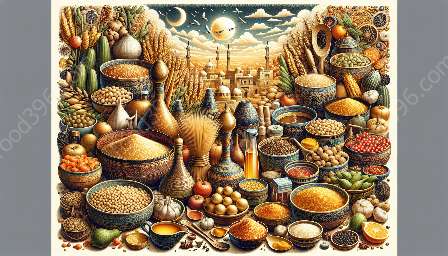Traditional food in African countries plays a significant role in shaping cultural identity and heritage. Each region in Africa boasts a unique culinary tradition, reflecting the diversity and richness of the continent’s culture. From staple dishes to cooking methods and dining practices, traditional food culture offers profound insights into the history, values, and social relationships of African societies.
Exploring Traditional Food Culture in Africa
Traditional African cuisine varies greatly from one region to another, influenced by geographical, historical, and cultural factors. For example, North African countries such as Morocco and Egypt are renowned for their flavorful tagines and couscous, which are deeply rooted in the region's Berber and Arabic heritage. In East Africa, the Swahili cuisine features a blend of Bantu, Arab, and Indian influences, resulting in a diverse culinary mosaic.
Central Africa is known for its reliance on starchy foods like cassava, plantains, and yams, often accompanied by hearty stews and sauces. West African cuisine, on the other hand, embraces a variety of bold flavors and spices, with dishes like jollof rice, fufu, and egusi soup taking center stage. Southern African countries showcase a fusion of indigenous flavors with European influences, featuring dishes like braai (barbecue), biltong (dried meat), and pap (maize porridge).
Economic and Social Significance
Traditional food systems in African countries not only contribute to cultural identity but also play a crucial role in local economies and social cohesion. Many traditional food practices are deeply intertwined with agricultural traditions, community gatherings, and rituals, creating a sense of belonging and unity among individuals.
Moreover, the preparation and sharing of traditional meals often involve communal participation, reinforcing social ties and promoting the transmission of culinary knowledge across generations. For example, the concept of Ubuntu, or 'I am because we are,' underlines the interconnectedness and communal nature of traditional African societies, as reflected in the communal preparation and consumption of meals.
Preservation and Innovation
As African societies continue to evolve, the preservation of traditional food culture is essential for safeguarding cultural heritage and promoting sustainable food practices. Efforts to revive ancestral cooking methods, promote indigenous ingredients, and support local food economies are integral to maintaining the authenticity and diversity of African cuisine.
Furthermore, the fusion of traditional recipes with modern culinary techniques has led to innovative gastronomic expressions, creating a dynamic synergy between tradition and innovation. This blend of preservation and adaptation ensures that traditional food culture remains vibrant and relevant in contemporary African societies.
Impact on Identity and Global Awareness
Traditional food culture serves as a symbol of identity and pride for African communities, representing a source of resilience and cultural continuity amid social, political, and economic transformations. The unique flavors, aromas, and rituals associated with traditional African meals help foster a sense of belonging and contribute to the promotion of cultural diversity on a global scale.
Moreover, traditional African cuisine has gained recognition on the international stage, captivating food enthusiasts and travelers seeking authentic culinary experiences. As a result, traditional food culture in African countries has become a vital component of global gastronomic diversity, transcending geographical boundaries and connecting people through shared culinary appreciation.
In conclusion, traditional food culture in African countries is deeply intertwined with the collective identity and heritage of diverse communities across the continent. By celebrating and preserving traditional food systems, African societies uphold ancestral knowledge and strengthen cultural resilience, enriching the global culinary landscape with their unique flavors and culinary traditions.



